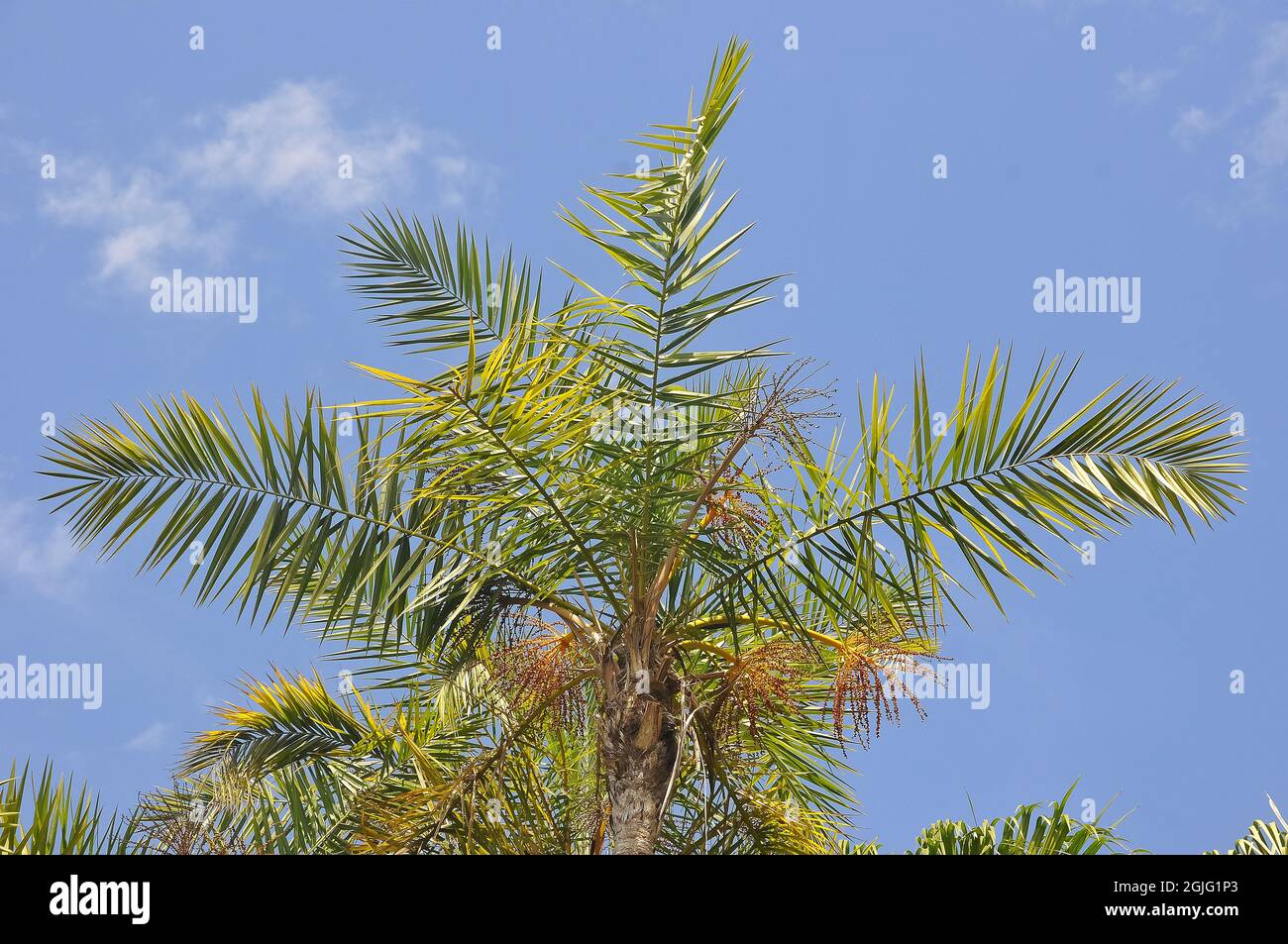
wild date palm or Senegal date palm, Senegalesische Dattelpalme, Phoenix reclinata, datolyapálma
Phoenix reclinata: Senegal Date Palm 4 Growing easily in full sun or partial shade, Senegal Date Palm will thrive on any well-drained soil. Plants should receive adequate moisture during periods of drought. This palm is too large for all but the largest residential landscapes. The y are very costly to purchase due to the slow growth rate.

PlantFiles Pictures Senegal Date Palm, African Wild Date Palm (Phoenix reclinata) 1 by palmbob
The Senegal date palm (Phoenix reclinata) is an elegant specimen tree. It sports multiple slender trunks, offering an interesting silhouette. The fronds are feathery and cast light shade for 12-20 feet. And with a maximum height of about 25-35 feet, this palm won't dwarf everything else in your landscape. It produces dates and showy white.
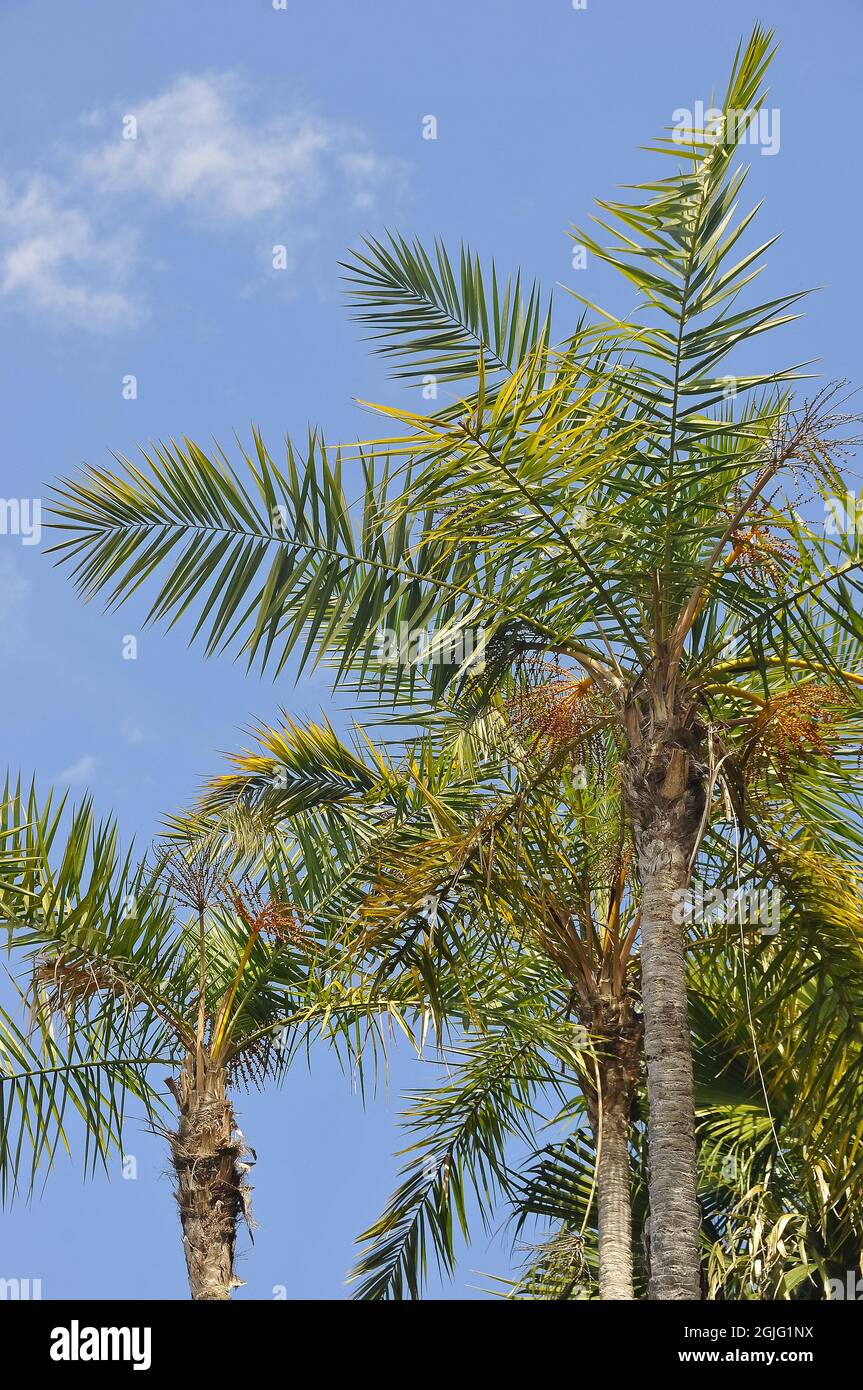
wild date palm or Senegal date palm, Senegalesische Dattelpalme, Phoenix reclinata, datolyapálma
Senegal Date Palm. Phoenix reclinata is a clumping palm with pinnate leaves that arch gracefully downward. Its many trunks grow steadily to a height of 15' to 30' tall. They produce an edible fruit and palm heart. Phoenix reclinata is slow to deroot, requiring a 2 month period to prevent shocking.

Phoenix reclinata Senegal Date Palm, תמר נטוי, תמר נטוי The Jerusalem Botanical Gardens
The Senegal Date Palm, Phoenix reclinata, is a stunning and versatile palm tree, known for its elegant, reclining growth and lush foliage. It's a multi-trunked palm, each trunk curving gracefully, giving it a unique and striking appearance. Native: Native to tropical Africa, including Senegal, it thrives in a variety of habitats from.
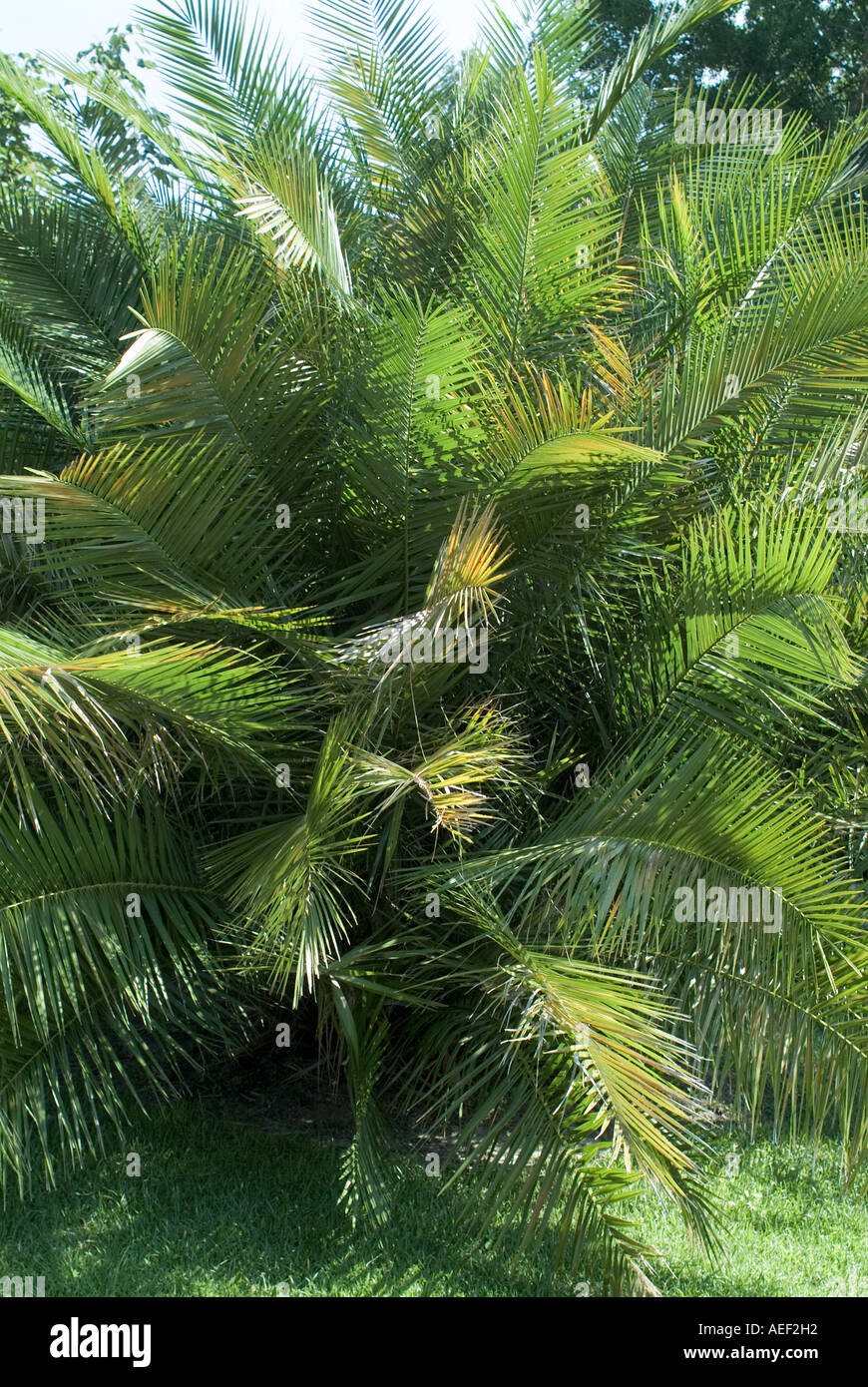
Senegal Date Palm Phoenix reclinata trees Stock Photo Alamy
Soil pH: 6-7.5. The optimum soil for your senegal date palm is a well-draining sandy loam soil with a pH value of 8 - 11 (so very much alkali). This soil should result in good growth and higher fruit yield. The senegal date palm tolerates dry soils well, so it mustn't become water-logged.
Trees of Santa Cruz County Phoenix reclinata Senegal Date Palm
Description. Phoenix Reclinata, commonly known as the Senegal Date Palm, is a species of flowering plant in the palm family Arecaceae. It is native to tropical Africa, specifically in areas that span from Senegal to Tanzania. This palm is a fast-growing and multi-stemmed plant that can grow up to 20 meters tall.

Phoenix reclinata Senegal Date Palm Buy seeds at
A mature specimen of Senegal date palm can reach 35 feet in height with a 12 to 20-foot-spread and creates a striking tree which casts a light shade. The palm is elegant when lit from below at night. It is best used as an accent for large landscapes and parks. The somewhat showy flower stalks, often lost within the thick foliage, are followed.
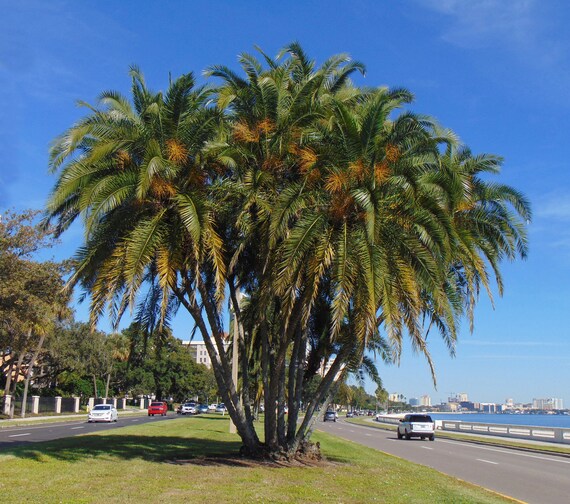
Senegal Date Palm Phoenix Reclinata 10 Seeds free US Etsy
Phoenix reclinata (Senegal Date Palm) is a Tree that grows 30-40 feet feet high and 15 feet feet wide. The Phoenix reclinata, commonly known as the Senegal Date Palm, is a beautiful plant native to Senegal and other countries in Africa. It features a tall, slender trunk with a crown of arching leaves that can reach up to 30-40 feet in height..
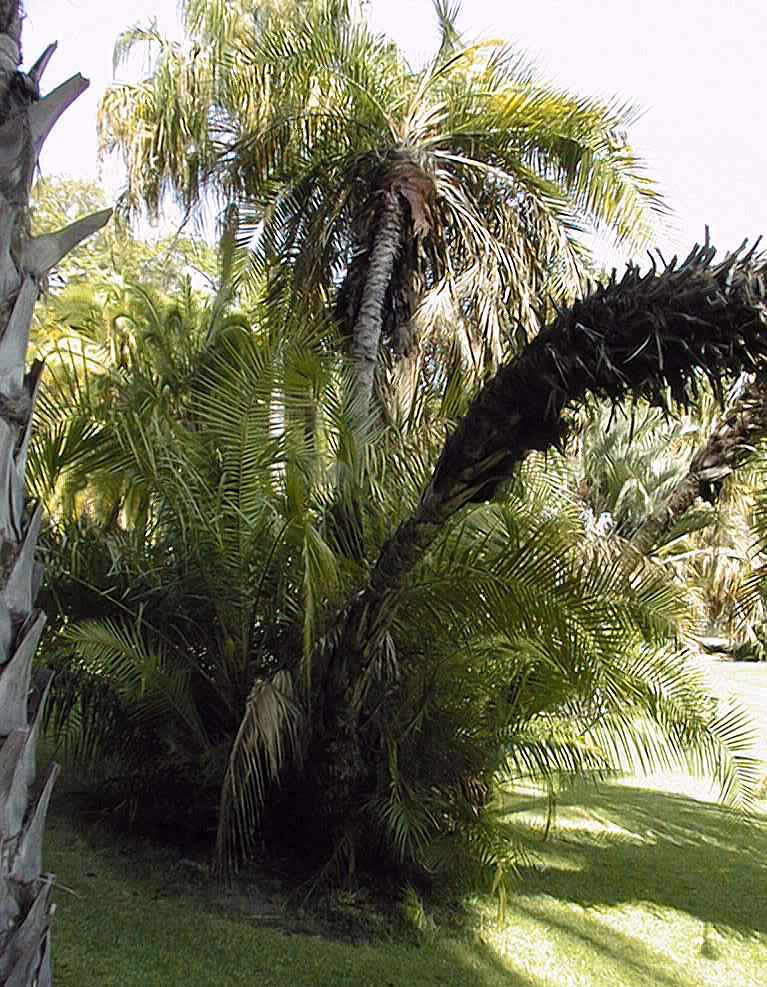
Senegal Date Palm (Phoenix reclinata)
Genus: Phoenix Species: reclinata Species Author: Jacq. Vernacular: Senegal Date Palm Synonyms: Phoenix pumila regel. This beautiful and unusual palm grows in huge clumbs that can make a striking statement in the landscape. The Senagal Date Palm is variable in shape and form but tends to grow as clumps composed of multiple stems reaching 25' to.
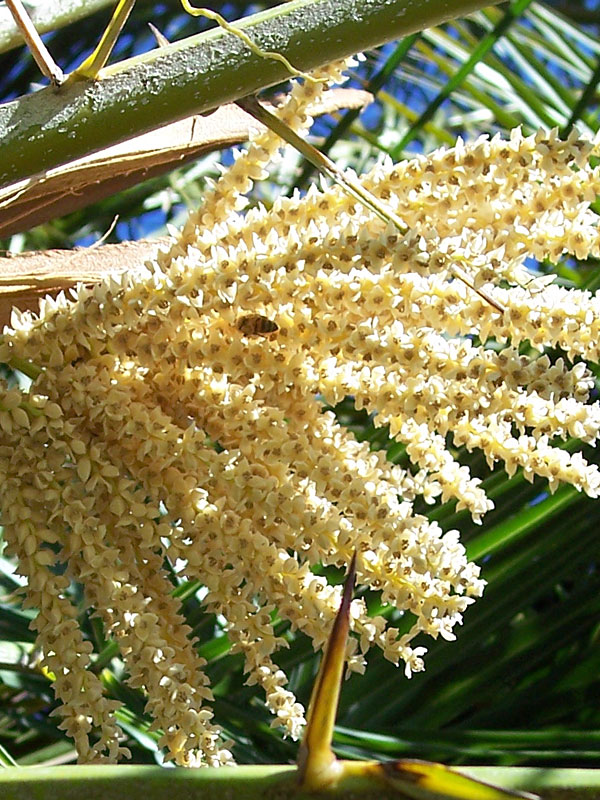
Senegal Date Palm Tree (phoenix reclinata) Urban Tropicals
Phoenix reclinata ( Senegal Date Palm ) Vigorous, clumping palm with many curving trunks. Medium to dark green fronds may reach 15 feet in length. Creamy-white, summer flowers are held in panicles, to 5 feet long, followed by small, red to black, dry-fleshed fruits. Interesting accent or specimen.

Phoenix reclinata — Senegal Date Palm — Palm Trees
The most common name for Phoenix reclinata in the USA is the Senegal Date Palm. It is also known regionally as the Reclinata Palm or the Wild Date Palm. This species is native to tropical Africa, Madagascar, and the Comoro Islands but has been widely cultivated in other tropical and subtropical regions around the world. Classification. Kingdom.
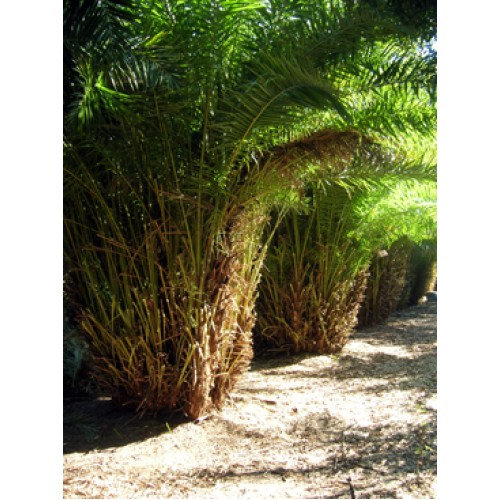
Reclinata / Senegal Date Palm / Phoenix reclinata 2224' Overall Height
A mature specimen of Senegal Date Palm can reach 35 feet in height with a 12 to 20-foot-spread and creates a striking tree which casts a light shade. The palm is elegant when lit from below at night. It is best used as an accent for large landscapes and parks. The somewhat showy flower stalks, often lost within the thick foliage, are followed.

PlantFiles Pictures Senegal Date Palm, African Wild Date Palm (Phoenix reclinata) by palmbob
All You should know about Senegal Date Palm (Phoenix Reclinata) > how to care and characteristics 🌱 PlantIn 🌿 Our best expert are here for your plants!
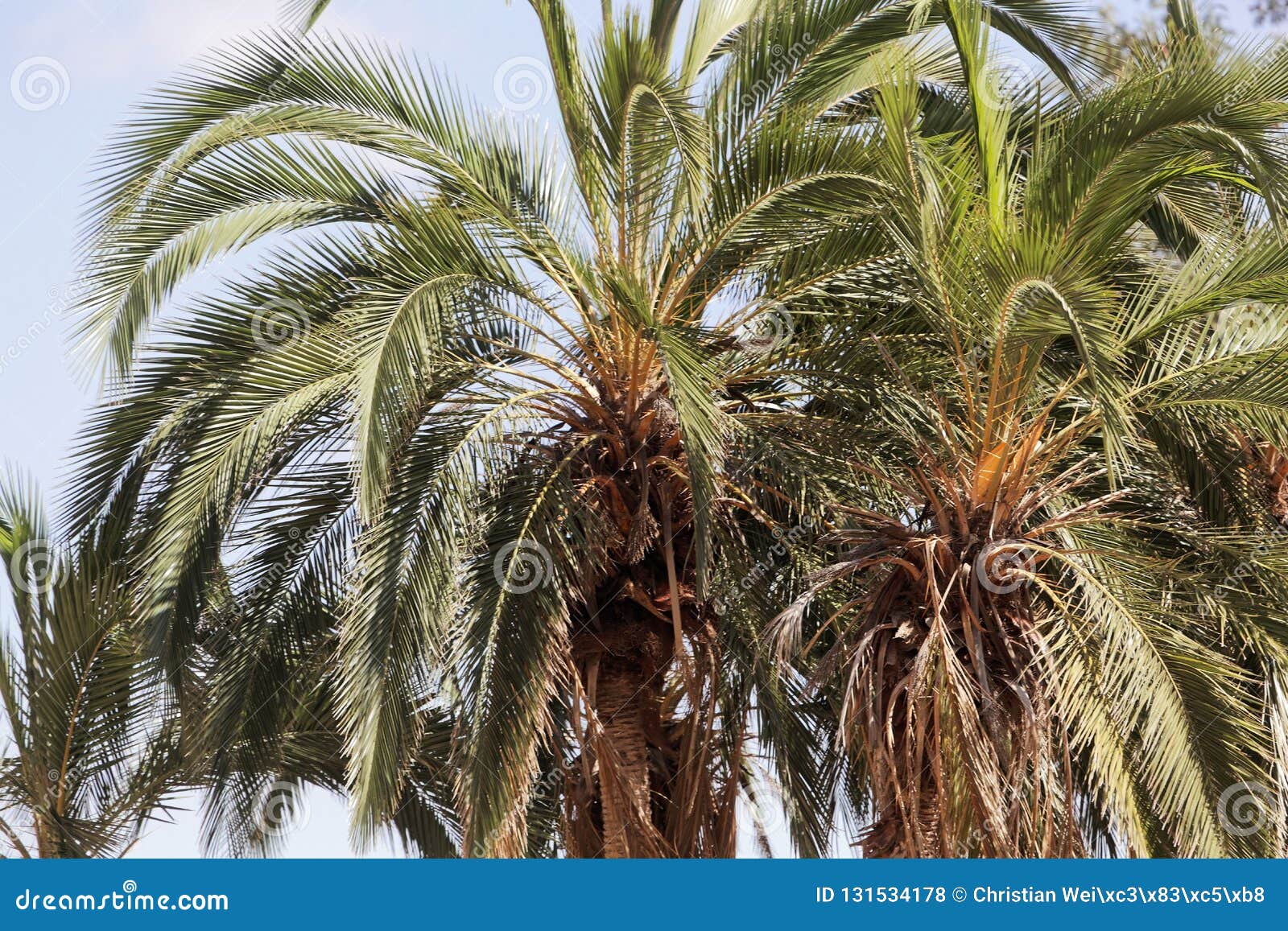
Senegal Date Palms Phoenix Reclinata Stock Photo Image of environment, leaf 131534178
The Senegal Date Palm is vulnerable to ganoderma butt rot fungus which enters through trunk and root injuries. Phoenix reclinata Description Height: 25-35 feet (7.6-10.6 meters) Spread: 12-20 feet (3.6-6 meters) Leaf: 12-18 inches (30-46 cm) Range: Not native to North America (USDA Hardiness Zones 9B through 11 - central and southern Florida.

Senegal Date Palm Tree (phoenix reclinata) Urban Tropicals
P. reclinata is a dioecious clustering palm, producing multiple stems from 7.5 to 15 m (22 to 45 feet) in height and 30 cm (12") in width. Leaves are pinnate with a prounced sideways curve, growing 2.5 to 4.5 m 7.5 to 14 feet) in length and 75 cm (30") in width. Leaf color is bright to deep green on 30 cm (12") petioles with long, sharp spines.
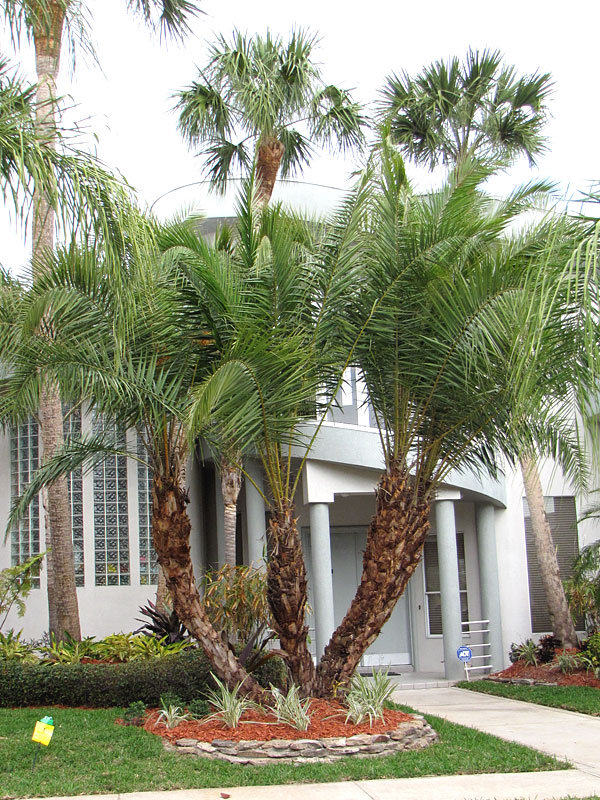
Senegal Date Palm Tree (phoenix reclinata) Urban Tropicals
Senegal date palms are also known as African date palms and reclining date palms. They are members of Arecaceae, the palm family. In its native range, the Senegal date palm, Phoenix reclinata, is quite the useful plant, a source of food and medicine, building materials, tools, toys, clothing and other essentials.